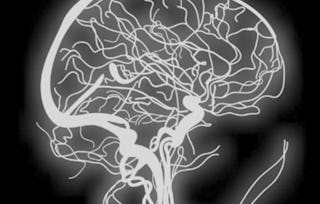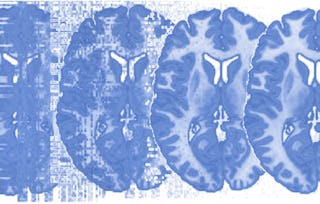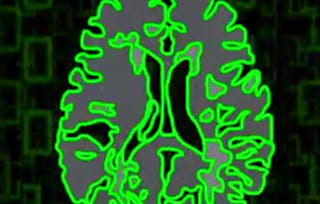Functional Magnetic Resonance Imaging (fMRI) is the most widely used technique for investigating the living, functioning human brain as people perform tasks and experience mental states. It is a convergence point for multidisciplinary work from many disciplines. Psychologists, statisticians, physicists, computer scientists, neuroscientists, medical researchers, behavioral scientists, engineers, public health researchers, biologists, and others are coming together to advance our understanding of the human mind and brain. This course covers the analysis of Functional Magnetic Resonance Imaging (fMRI) data. It is a continuation of the course “Principles of fMRI, Part 1”.

Principles of fMRI 2

Principles of fMRI 2
This course is part of Neuroscience and Neuroimaging Specialization


Instructors: Martin Lindquist, PhD, MSc
18,346 already enrolled
Included with
249 reviews
Skills you'll gain
Details to know

Add to your LinkedIn profile
4 assignments
See how employees at top companies are mastering in-demand skills

Build your subject-matter expertise
- Learn new concepts from industry experts
- Gain a foundational understanding of a subject or tool
- Develop job-relevant skills with hands-on projects
- Earn a shareable career certificate

There are 4 modules in this course
This week we will discuss psychological and behavioral inference, as well as advanced experimental design.
What's included
8 videos1 reading1 assignment
This week we will continue with advanced experimental design, and also discuss advanced GLM modeling.
What's included
11 videos1 assignment
This week we will focus on brain connectivity.
What's included
8 videos1 assignment
This week we will focus on multi-voxel pattern analysis.
What's included
10 videos1 assignment
Earn a career certificate
Add this credential to your LinkedIn profile, resume, or CV. Share it on social media and in your performance review.
Instructors

Offered by
Explore more from Data Analysis

Johns Hopkins University

Johns Hopkins University

Johns Hopkins University
Why people choose Coursera for their career

Felipe M.

Jennifer J.

Larry W.

Chaitanya A.
Learner reviews
- 5 stars
77.91%
- 4 stars
17.26%
- 3 stars
4.01%
- 2 stars
0.40%
- 1 star
0.40%
Showing 3 of 249
Reviewed on May 23, 2019
Very good course. Best week is the last week. Its does a good overview of fMRI Statistical analysis and design of experiments.
Reviewed on Nov 27, 2020
More illustration with cartoons would be much appreciated, words and text are kind of too abstract and hard to grab.
Reviewed on Nov 16, 2016
The course was ery good, I wish it also included working with sample fmri data.

Open new doors with Coursera Plus
Unlimited access to 10,000+ world-class courses, hands-on projects, and job-ready certificate programs - all included in your subscription
Advance your career with an online degree
Earn a degree from world-class universities - 100% online
Join over 3,400 global companies that choose Coursera for Business
Upskill your employees to excel in the digital economy
Frequently asked questions
To access the course materials, assignments and to earn a Certificate, you will need to purchase the Certificate experience when you enroll in a course. You can try a Free Trial instead, or apply for Financial Aid. The course may offer 'Full Course, No Certificate' instead. This option lets you see all course materials, submit required assessments, and get a final grade. This also means that you will not be able to purchase a Certificate experience.
When you enroll in the course, you get access to all of the courses in the Specialization, and you earn a certificate when you complete the work. Your electronic Certificate will be added to your Accomplishments page - from there, you can print your Certificate or add it to your LinkedIn profile.
Yes. In select learning programs, you can apply for financial aid or a scholarship if you can’t afford the enrollment fee. If fin aid or scholarship is available for your learning program selection, you’ll find a link to apply on the description page.

